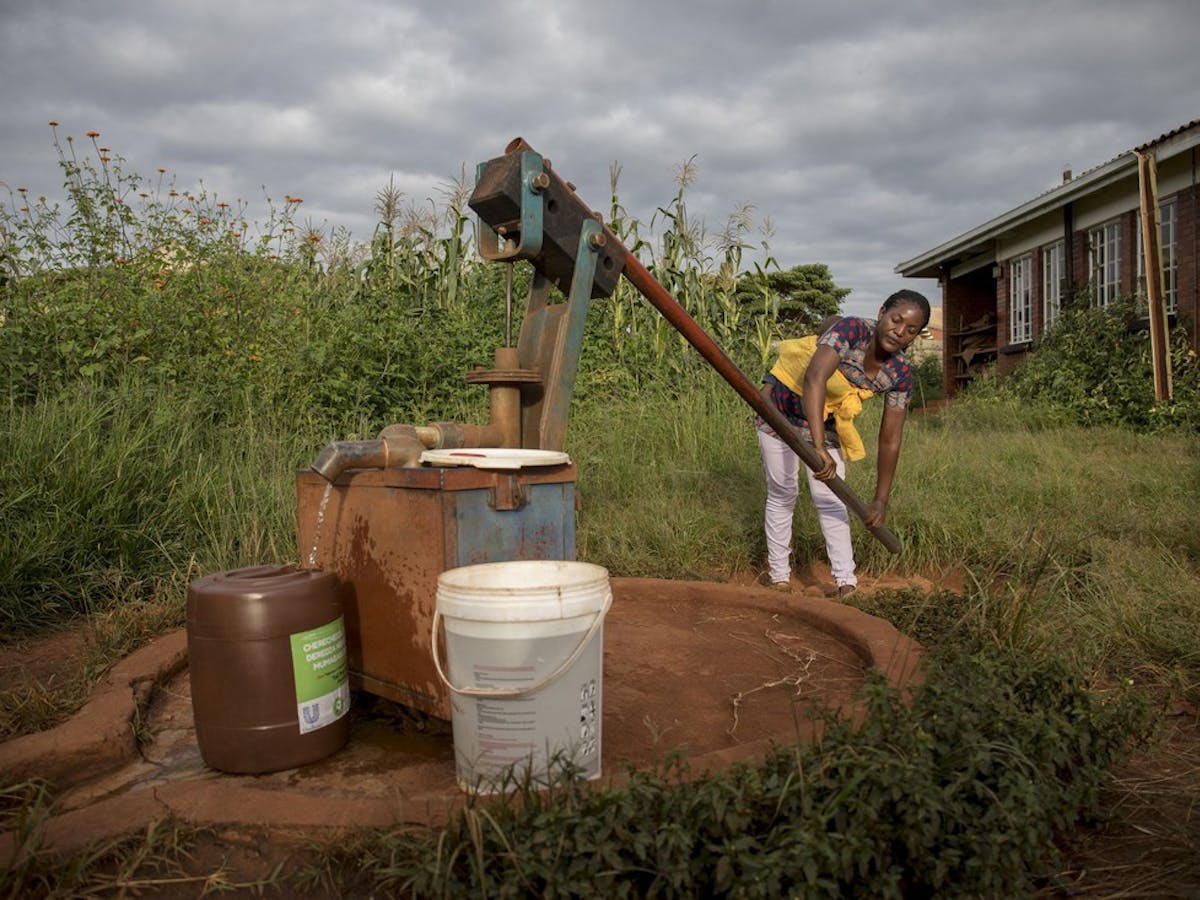COVID-19 has prompted an explosion of care work amidst duel economic and health crises — time cooking, cleaning and caring for children, the ill, and the elderly. This massive workload increase has been mostly absorbed by the world’s women. The Center for Global Development estimates that during the pandemic, the average working-age woman in low- and middle-income countries put in additional 217 hours of unpaid care, while men put in additional 70 hours. This is on top of the baseline levels of care work assumed by women around the world even before the pandemic struck.
While care work is necessary and can be gratifying, when it is required in excess and without support, it leads to inequality.
Women around the world have sacrificed their incomes for the well-being of their families and communities. Throughout the pandemic, women have lost more jobs than men and more women entrepreneurs have shut down their businesses than men. This comes at a devastating cost to their economic security. During the first year of the pandemic, women in formal employment lost at least $800 billion in income due to increased care responsibilities and overrepresentation in the hardest-hit sectors. This a conservative estimate that does not even account for women in informal sectors, like domestic workers, market vendors and garment workers.
Oxfam calculations show that women’s unpaid and underpaid care work has an economic value nearly $10.8 trillion worth annually — three times the size of the global tech industry. And just this summer, McKinsey warned that “in a gender-regressive scenario in which no action is taken to counter these effects, we estimate that global GDP growth could be $1 trillion lower in 2030 than it would be if women’s unemployment simply tracked that of men in each sector.”
Have we done enough? No, we have not. According to data from the UNDP COVID-19 Global Gender Response Tracker, only 5.8% of over 3,000 policies initiated by governments globally in response to the pandemic directly address the burden of care on women.
We must stop using women’s unpaid labor as a global social safety net to rescue societies when disasters hit. It’s time to meaningfully invest in care.
The U.S. has an opportunity to lead in pushing for greater gender equality by prioritizing care-supporting investments, services and policies. The Biden Administration can make progress on its Commitments to the Generation Equality Forum to strengthen women’s global economic security by advocating for the World Bank to meaningfully invest in care as part of the upcoming IDA20 replenishment process. The International Development Association (IDA) is the part of the World Bank that helps the world’s poorest countries. Decisions on what priorities will be funded by IDA are being made in consultations with donor countries — including the U.S. — this summer.
Given the Biden Administration’s prioritization of care as essential to how we recover in the U.S., investing in care internationally is a natural extension. In prior years, only 2.1% of IDA financing supported affordable care services. The U.S. can help change this.
The World Bank recently released the draft policy commitments it’s prepared to make for the IDA20 replenishment term, which indicate care is on the agenda — a welcome shift from the last IDA replenishment where women’s unpaid care work received only a passing mention. This time around the World Bank is proposing new commitments to support IDA countries in order to expand access to childcare and address barriers to economic inclusion. These are positive first steps; however, it doesn’t go nearly far enough.
Investments in a package of care of measures, like care-supporting physical infrastructure, care services, care-supporting social protections, gender-responsive budgeting, and data collection are critical to reduce the unequal and gendered responsibility of unpaid and underpaid care work.
Childcare is undoubtedly an important part of the care policy agenda, but it is just the start. Investments in basic care infrastructure such as piped water, electricity, transportation, and time- and labor-saving equipment are also essential for reducing the time and intensity of household chores and care tasks that women have to do.
It is vital that other care-supporting social protection policies such as universal healthcare and education, cash transfers, and old-age social pensions are also strengthened, and workers must have access to care-supporting labor policies such as paid leave, sick leave and parental leave.
The U.S. should also urge the World Bank to commit to investing in technical assistance for governments to carry out gender-responsive budgeting that takes into consideration the different experiences of women, men, and gender-diverse groups. When budgets are analyzed from a gender perspective, gaps in funding for investments that increase women’s quality of life — like care — are identified. Additionally, adequate representation of women and girls through trade unions, grassroots-level governance tiers, and informal community meetings will ensure women and girls have a say in decisions related to legal and governance measures on the distribution of care work.
Finally, the World Bank must gather data. Collecting data on how people use their time during the day is increasingly used to inform policies in low- and middle-income countries. This data sheds significant light on women performing unpaid care work and how much time they have (or don’t have) to pursue other productive activities such as seeking work, undertaking paid employment, receiving healthcare, and pursuing education and skills development.
The U.S. is the largest shareholder at the World Bank and has used its influence at different opportunities to drive positive reforms at the institution that have made it more transparent, more accountable, and more environmentally responsible. The World Economic Forum has calculated that COVID-19 has already set us back by a generation in our quest to reach gender equality. Let’s not let another generation slip by.
Photo: Cynthia Matonhodze/Oxfam

